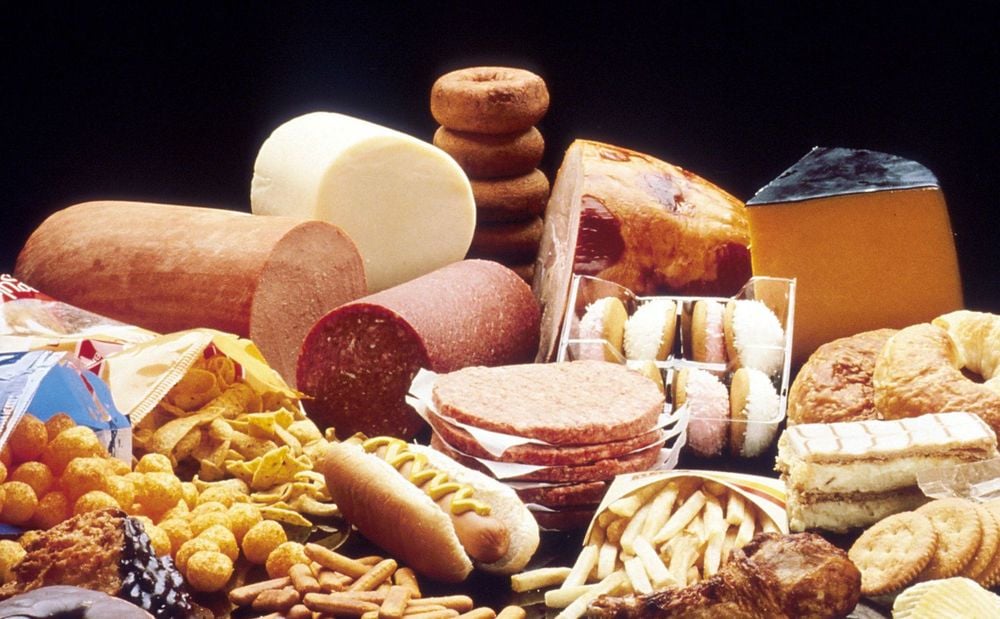This is an automatically translated article.
Saturated fat was once considered unhealthy, but some studies suggest that saturated fat, if consumed in moderation, may not be too bad for heart health . Furthermore, replacing saturated fat with unsuitable foods like refined carbohydrates carries more health risks. Here are five ways we can include healthy fats and oils in our heart-healthy diet.
1. Don't obsess over saturated fat
Health experts recommend that we eat less saturated fat because they found it causes an increase in LDL, a "bad" cholesterol. That advice makes complete sense, given the fact that high LDL is linked to heart disease.
But if we focus only on the saturated fat element, we may be wrong. There are many factors that increase the risk of heart disease, said Dr. Dariush Mozaffarian, of the Harvard School of Public Health. When you consider all the factors together, saturated fat isn't as scary as we once thought. When examining the evidence, Mozaffarian and his colleagues found that saturated fat levels had little impact on heart-related risk. According to him, if a person's diet consumes about 11.5% of calories from saturated fat, then just cut it by about half, to 6.5%, then the risk of heart disease is only about 10%. But in cutting fat, a lot of people have replaced saturated fat with products that are fat-free but high in refined carbohydrates. This switch can increase your risk of heart disease. The American Heart Association recommends that no more than 7% of total calories come from saturated fat, which is the predominant fat found in fatty meats and dairy foods.

Chất béo bão hòa có thể làm tăng nguy cơ mắc các bệnh tim mạch
2. Choose vegetable oils that are good for the heart
Most experts still think that swapping some saturated fats for unsaturated fats is a smart idea for health concerns. For example, olive and canola oils are better choices than butter, but there's also a lot of debate about which is the healthiest choice.
Vegetable oils are often mixed with two types of fats, polyunsaturated fats and monounsaturated fats. While olive oil is mostly monounsaturated fat, corn and soybean oils are mostly polyunsaturated. Canola oil is different from other vegetable oils because it has omega-3 fatty acids, like those found in fish oil.
The use of a variety of vegetable oils can be good for cooking and give good flavor to dishes. Olive oil, with its rich flavor, is perfect for salad dressings, for mixing pasta or for dipping bread. Peanut oil and sesame oil also have rich flavors, but all three oils lose their flavor easily at high heat. Canola and sunflower oils can be used for cooking because they don't lose their flavor when cooked at high temperatures. Also, canola oil has very little flavor on its own, so it won't overwhelm the other ingredients of the dish.

Sử dụng dầu ăn có nguồn gốc thực vật giúp các món ăn có hương vị ngon hơn
3. Get More Omega-3 Fats
Our body always needs to get enough omega-3, which is found in fish oil. Omega-3s help the body avoid abnormal heart rhythms, keep blood vessels flexible, and reduce the risk of heart attack or stroke. It is recommended that each person eat at least two servings of fatty fish such as salmon, sardines, or albacore tuna per week. Walnuts, flaxseeds and canola oil are also good sources of omega-3, although less so than fish. If you intend to take other supplements, talk to your doctor first for further advice.
4. Avoid Trans Fats
Artificial trans fat should be completely eliminated from the diet as it increases bad cholesterol and lowers good cholesterol. It can also increase inflammation, which has been linked to heart disease, stroke, diabetes and other chronic diseases. Fortunately, almost all products are required to label and ban trans fats, greatly limiting their presence in food. However, trans fats can still be found in some processed foods.
Also note that if a product label says there's no artificial trans fat per serving, it can actually have up to half a gram of trans fat per serving. So, check the food ingredient list on the label before you intend to buy and use them and avoid foods that contain hydrogenated oils.

Chất béo chuyển hóa nhân tạo làm tăng tăng cholesterol xấu và giảm cholesterol tốt
5. The diet needs to be balanced and full of nutrients
Fats are an important component of a healthy diet, especially unsaturated fats. The Mediterranean diet provides 30% or more calories from fat. This diet is known to be one of the healthiest in the world. Most of the fat in the Mediterranean diet comes from olives and other vegetable oils, as well as from fish. A good diet is not a matter of fatty acid percentages but a matter of an overall healthy eating pattern. Get enough fruits, vegetables, whole grains, fish, lean meat, poultry, and healthy fats for a healthy, balanced diet.
Vinmec International General Hospital is one of the hospitals that not only ensures professional quality with a team of leading medical doctors, modern equipment and technology, but also stands out for its examination and consultation services. comprehensive and professional medical consultation and treatment; civilized, polite, safe and sterile medical examination and treatment space.
If you have a need for consultation and examination at Vinmec Hospitals under the nationwide health system, please book an appointment on the website for service.
Please dial HOTLINE for more information or register for an appointment HERE. Download MyVinmec app to make appointments faster and to manage your bookings easily.
Reference source: webmd.com













